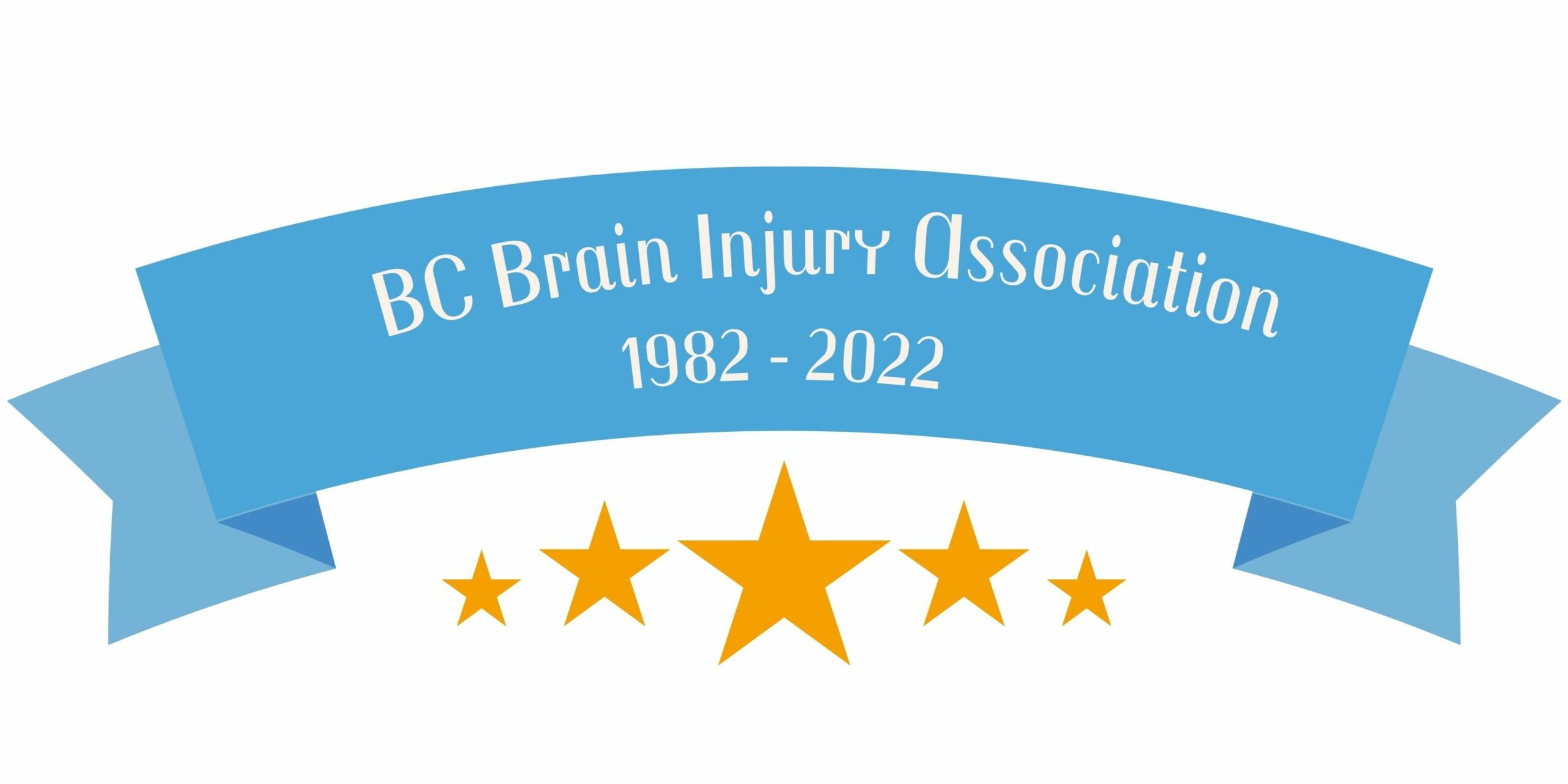
Have you been injured in a crash and you are recovering but things aren’t going as planned? Changes to ICBC’s Accident Benefits Coverage has shifted focus from financially compensating injuries to a care-based system. There’s now more money available for your medical care, treatment and rehabilitation expenses, as well as wage loss if you’re unable to work.
Effective April 1st, 2019: Find all of the changes to the ICBC Accident Benefits coverage by clicking the link.
If you are a BC resident and were injured in a car crash after April 1st, 2019, this final blog post in our series describes everything you need to know about the middle stage of accessing the treatment options and accident benefits you are entitled to, as well as the final stage of ending the claims process. It answers FAQs like:
- What is the definition of a minor injury?
- What if I’m not recovering as expected?
- What if I don’t have a family doctor?
- What injury settlements are available to me?
- How do I navigate a dispute with ICBC?
- How does the end of the claims process work?
What should I do after reading this article?
Your feedback and questions are important to us! If this is an informative read or there are any questions you would like to see answered that may help others navigate the new changes as well, please leave a comment through our contact form!
If you are a crash survivor navigating the new ICBC process, please take some time to complete our survey that will be coming out shortly as we work towards providing you with the best source of information possible.
- Make sure you review ICBC’s website in addition to this post. It includes information about why the changes have been made, and covers a host of topics ranging from changes in benefits to a more detailed description of the claims process. You can also find more detail in the Q & A for Health Care Providers and Q & A for Health Partners.
- If your crash was prior to April 1st, 2019, please talk to your Claim Representative. The changes to insurance that came into effect on April 1st, 2019 may affect your coverage.
- Please use our Contact form to share your thoughts with us about the changes to insurance and their implications.
- Sign up for our newsletter to receive the online survey we will be sending out in the near future. We want to collect meaningful stories that reflect survivors’ experiences in navigating the new ICBC claims process.

When you are injured in a crash, you have access to certain pre-authorized treatments, and your healthcare practitioner will work with you to put a treatment plan in place. We encourage you to work with your Claim Representative to identify what Accident Benefits are included in your Basic insurance to support your recovery. ICBC’s Accident Benefits Coverage is available for all British Columbians injured in a crash, no matter who is responsible or at fault.
ICBC representatives are there to answer your questions and guide you through your claim from start to finish. If you need additional treatment beyond 12 weeks following a crash, contact your Customer Claim Specialist (CCS). You are assigned a CCS during your initial crash and injury report to ICBC. They will discuss with you how your benefits can continue to support your recovery. If a Customer Recovery Specialist (CRS) is assigned to take on the Accident Benefit portion of your claim, they will be your main point of contact to discuss how your benefits can continue to support your recovery beyond 12 weeks.
Government-dictated treatment guidelines for examination, assessment, diagnosis and treatment of minor injuries have been developed through consultation with the medical community. These guidelines, informed by healthcare professionals, provide direction for healthcare providers to ensure current best practices in health care. These guidelines help to ensure more consistent care and support for people who are injured in a crash.
They have been carefully drafted to ensure the appropriate degree of practitioner autonomy and clinical judgement is maintained when treating patients. The regulations also allow room for the protocols to evolve as new medical evidence is available to ensure they remain relevant in supporting recovery. The treatment guidelines are published in the Minor Injury Regulation[1] and are intended to be followed by healthcare practitioners.
While ICBC wants to ensure continuity of care where possible, you may change your medical provider at any point during the recovery process.
[1] Insurance (Vehicle) Act. R.S.B.C. 1996, c.231. Minor Injury Regulation, 234/2018 amended by 60/2019 (effective April 1, 2019), pg. 20-21. http://www.bclaws.ca/civix/document/id/oic/oic_cur/0595_2018

ICBC will not diagnose your injury. Your doctor or healthcare practitioner must diagnose your injury, and together with your functional capacity, the diagnosis will help ICBC determine whether or not your injuries call within the minor injury definition. Doctors or healthcare practitioners can update a diagnosis at any time.
ICBC’s minor injury definition includes sprains, strains, general aches and pains, cuts, bruises, road rash, minor whiplash, temporomandibular joint disorder (TMJ) – pain in your jaw joint and in the muscles that control jaw movement, as well as short term changes related to concussions and mental health conditions.
If your injury meets the definition of a minor injury, this will only impact the general damages portion of your claim settlement. General damages is the term for payments received to compensate you for such things as pain and suffering and the inability to perform certain activities. This is one component that makes up a claim settlement.
Whether or not an injury falls within the minor injury definition does not impact your entitlement to the $300,000 Accident Benefits coverage available for medical care and treatment.
 ICBC considers a concussion to fall within the minor injury definition when it does not result in an incapacity beyond 16 weeks after the initial symptoms. Incapacity[1] refers to your ability to perform the activities of daily living, which include but aren’t limited to: going to work or school, preparing your own meals, driving or taking transit, managing personal finances, performing personal hygiene, and managing personal medication.
ICBC considers a concussion to fall within the minor injury definition when it does not result in an incapacity beyond 16 weeks after the initial symptoms. Incapacity[1] refers to your ability to perform the activities of daily living, which include but aren’t limited to: going to work or school, preparing your own meals, driving or taking transit, managing personal finances, performing personal hygiene, and managing personal medication.
If your concussion or brain injury impacts your life for more than 16 weeks [e.g., you’re still not able to go to work or school, you have to significantly modify your work hours or duties, or you’re unable to care for yourself] it will no longer be considered to fall within the definition and the limit on pain and suffering will not apply.
Whether or not your concussion falls within the definition, it does not change your entitlement to the $300,000 Accident Benefits coverage available for medical care and treatment.
[1] Insurance (Vehicle) Act. R.S.B.C. 1996, c.231. Minor Injury Regulation, 234/2018 amended by 60/2019 (effective April 1, 2019), pg. 14. http://www.bclaws.ca/civix/document/id/oic/oic_cur/0595_2018

Registered Care Advisors (RCAs) are medical professionals independent of ICBC who are governed by the College of Physicians and Surgeons, whose role is to support family doctors on best practices, as well as appropriate diagnosis and treatment pathways. They are available for a second opinion in the following scenarios:
- Your doctor is unable to make a clear diagnosis
- Your recovery isn’t going as expected
- Various factors are complicating your recovery
Around the 90-day mark after a motor vehicle accident, your doctor will consider whether your recovery could benefit from the involvement of an RCA. If your doctor recommends this, you can expect to meet with the RCA within 15 business days of your doctor’s referral.
The RCA may offer additional diagnosis or treatment options that assist your doctor in helping you get better.
Regulations state that your doctor must consider a RCA at 90 days if you are not recovering as expected. If your doctor or healthcare practitioner is reluctant to refer you to an RCA at 90 days, you can contact your ICBC Claim Representative to request that they discuss this with your doctor. Remember, you retain the power to choose your primary care doctor and can switch at any time to ensure the best quality care.

It is estimated that there are 200,000 to 700,000 people in BC that don’t have a family doctor. The BC College of Family Physicians has provided some suggestions for how to find a family doctor.
ICBC’s new Accident Benefits system considers physicians to be the primary authority when they are present, but ICBC is able to communicate with all treatment providers involved in a customer’s care.
People with no family doctor may also choose to visit an alternative healthcare practitioner. This person can communicate with your Claim Representative. It is important to remember that only qualified individuals can diagnose you and provide referrals. Qualified individuals include healthcare professionals such as physiotherapists, chiropractors, registered massage therapists, kinesiologists, psychologists, clinical counselors and acupuncturists. If things are not going as expected, however, you may need to visit a walk-in clinic to visit a family doctor to seek a referral to a Registered Care Advisor (see previous sections).
A few other points of note about visiting a family doctor:
- ICBC crash claim customers who are not disabled and do not require treatment beyond 12 weeks are not required to see a family doctor.
- If you choose to visit a drop-in family doctor for care, collecting documentation to track your diagnosis and treatment is very important when you are unable to see the same doctor consistently.
- According to legislation, doctors are not able to refuse treatment to anyone injured in a motor vehicle accident. If you have been refused treatment by a drop-in family doctor, please consider filing a complaint with the College of Physicians and Surgeons of BC.
There are also special training programs for healthcare professionals to manage concussion recovery. You can find a list of the concussion management programs and certified professionals in Brainstreams’ online list of services.

The determination of an injury falling under the definition of minor only affects your compensation for pain and suffering. This is just one part of your claim and is separate from your medical treatments and benefits to help you recover. As of April 1, 2019, a limit of $5,500 will apply to pain and suffering payouts for injuries that fall under the definition.
For concussions or mental health conditions, if there is a substantial inability to perform essential tasks beyond 16 weeks, the limit on pain and suffering will not apply. See the next section “Are there specific considerations for concussions?” for more details.
If the injury results in serious impairments to your life for more than 12 months [e.g., you’re still not able to go to work or school, you have to modify your work hours or duties, or you’re unable to care for yourself] it will no longer comply with the minor injury definition. As such, there will be no limit on pain and suffering.
 A limit (of up to $5,500) on pain and suffering for minor injuries came into effect for accidents occurring on or after April 1st, 2019. The pain and suffering component of a claim settlement is a recognition of the inconvenience and emotional distress of being in a crash, but it is just one part of your claim. This one-time payment is totally separate from your medical treatments and benefits.
A limit (of up to $5,500) on pain and suffering for minor injuries came into effect for accidents occurring on or after April 1st, 2019. The pain and suffering component of a claim settlement is a recognition of the inconvenience and emotional distress of being in a crash, but it is just one part of your claim. This one-time payment is totally separate from your medical treatments and benefits.
The limit does not apply to major and catastrophic injuries, and the limit on the pain and suffering component of the injury claim settlement is separate from any treatment or benefits required for recovery. For example, if you sustain a concussion, you are eligible for a pain and suffering settlement, but you are also eligible for the treatment benefits that are available.

A businessman pressing a Claims button on a transparent screen.
If another driver is at least partly responsible for the crash, you may qualify for financial compensation (commonly known as a claim settlement). This compensation is separate from your treatments and other benefits under Basic insurance. Your Claim Representative will explain how this works and what factors are taken into account.
How compensation works
Compensation is offered to those who have been in a crash and, as a result, sustained injuries and, if applicable, lost wages. Your Claim Representative will discuss the compensation amount with you, based on factors such as:
- The extent or severity of your injuries
- How your recovery is progressing
- Percentage of responsibility by the other driver
If you accept the compensation offered to you, you can still access the treatments you need for your recovery, as care and recovery are separate from compensation.
Talk to your ICBC Claim Representative
Your Claim Representative will be your main point of contact throughout the life of your claim. They’ll tell you what to provide to ICBC, answer your questions, and help you navigate your options.
Your Customer Claims Specialist will always be the person to handle any settlement, even in cases where the benefit component has been re-assigned to a Customer Recovery Specialist.
Disputing a settlement
If an agreement can’t be reached with your claim representative, find out your options for disputing your settlement offer.
With the new changes, the focus has shifted away from financially compensating injuries to a care-based system. There’s now more money available for your medical care, treatment and rehabilitation expenses, and wage loss if you’re unable to work. The increase in Accident Benefits and change in how injuries are compensated aims to decrease legal costs to ensure customers are able to focus on what matters most – accessing necessary medical treatment to improve their recovery.
 Ongoing treatment and recovery costs will continue being open for the duration of your recovery with ICBC, and treatments will continue to be covered based on what is necessary, reasonable, and likely to promote rehabilitation. Your Claim Representative will continue to oversee your case and treatment approvals.
Ongoing treatment and recovery costs will continue being open for the duration of your recovery with ICBC, and treatments will continue to be covered based on what is necessary, reasonable, and likely to promote rehabilitation. Your Claim Representative will continue to oversee your case and treatment approvals.
Reaching a settlement does not restrict your access to ongoing treatment costs. This is part of the care-based system, where the focus has shifted away from financially compensating injuries as a lump sum payment, to making more money available for your medical care, treatment and rehabilitation expenses, as well as wage loss if you’re unable to work.

Talk to you ICBC Claim Representative
If you don’t agree with an assessment or decision ICBC has made about your claim, you have options for disputing it.
Whether a responsibility assessment, minor injury determination, denied benefit, or settlement offer, you have options for disputing assessments or decisions made about your claim. In all cases, you should talk to your Claim Representative first. It’s important that both of you understand all of the factors taken into account and this is your opportunity to point out anything that might have been overlooked or ask questions about how the decision was made.
If you are still not satisfied after speaking with your Claim Representative, ask to speak to their manager and they will review the details of your claim.
File a dispute with the Civil Resolution Tribunal
For crashes that occurred on or after April 1st, 2019, including minor or major injury (up to $50,000), the Civil Resolution Tribunal (CRT) is an independent dispute resolution service focused on helping parties reach an agreement wherever possible. The CRT can look into disputes between customers and ICBC on matters such as minor injury determination, settlement offers, benefit entitlements, and responsibility (fault) assessments.
The CRT is completely independent from ICBC and is an accessible system designed to be navigated by the public without need for legal representation. It offers easier, cost-efficient dispute resolution services with faster decisions for customers.
Personal injury lawyers are not excluded in the CRT process. If a customer appeals a CRT decision, the case may be referred to the Supreme Court for judicial review.
Dispute your claim in court
You can file some settlement offer disputes for accidents prior to April 1, 2019, in small claims court or B.C. Supreme Court. Please note, cases in court could take several years to resolve and the court has the final say.

If you’ve been injured in a crash, you may be wondering whether you can, or should get a lawyer to help you with your claim. Given the recent changes to ICBC insurance, please ensure you read all the information available carefully. However, whether or not you retain a lawyer is entirely your choice. Consider time, cost and the complexity of your claim before hiring a lawyer for legal advice or to represent you in a claim.

In British Columbia, individuals who suffer injury because of someone else’s fault may be entitled to compensation. If choosing to seek legal advice, it is important that you seek a qualified legal professional experienced in representing brain injury survivors. Lawyers who specialize in brain injury cases have the knowledge to assist with accessing funding for the necessary private professional services, life-long care, and compensation for lost income and/or earning capacity.
Brainstreams has developed some questions designed to help select legal counsel that specialize in brain injury work.
Legal counsel can assist with disputes and advocates can also provide you with more information and guidance during your recovery journey.

Your Accident Benefits and claim for compensation are separate and distinct. You can settle your claim for compensation at any time with no impact on your Accident Benefit claim.
When it comes to compensation above and beyond your Accident Benefits, there are commonly three main components:
- wage loss (when applicable)
- out-of-pocket expenses (g., costs not covered under the Accident Benefits contract)
- pain and suffering (recognition of the inconvenience and emotional distress of being in a crash)
Wage loss and out-of-pocket expenses are often a matter of a simple calculation. Pain and suffering is less tangible, and is meant to compensate you for the overall impact to your life. Customer Claims Specialists will assess pain and suffering on the many claim factors (e.g., nature of injury, recovery, pre-existing conditions, etc.) and typically in comparison with settlement amounts for similar claims.
A limit (of up to $5,500) on pain and suffering for minor injuries came into effect for accidents occurring on or after April 1st, 2019. Keep in mind that the pain and suffering component of a claim settlement is just one part of your claim. This one-time payment is totally separate from your entitlement to the $300,000 Accident Benefits coverage available for medical care and treatment.
Once you have agreed on a settlement amount with your Customer Claims Specialist, you will sign a release in exchange for the settlement cheque. In signing this release, you give up the right to pursue the responsible party and/or ICBC for more money at a later date.
 Your feedback and questions are important to us! Has this been an informative read? Are they any questions you would like to see answered that may help others navigate the new changes as well? Please leave a comment through our contact form!
Your feedback and questions are important to us! Has this been an informative read? Are they any questions you would like to see answered that may help others navigate the new changes as well? Please leave a comment through our contact form!
If you are a crash survivor navigating the new ICBC process, please take some time to complete our survey that will be coming out shortly as we work towards providing you with the best source of information possible.
- Make sure you review ICBC’s website in addition to this post. It includes information about why the changes have been made, and covers a host of topics ranging from changes in benefits to a more detailed description of the claims process. You can also find more detail in the Q & A for Health Care Providers and Q & A for Health Partners.
- If your crash was prior to April 1st, 2019, please talk to your Claim Representative. The changes to insurance that came into effect on April 1st, 2019 may affect your coverage.
- Please use our Contact form to share your thoughts with us about the changes to insurance and their implications.
- Sign up for our newsletter to receive the online survey we will be sending out in the near future. We want to collect meaningful stories that reflect survivors’ experiences in navigating the new ICBC claims process.

 ICBC Changing Car Insurance
ICBC Changing Car Insurance



